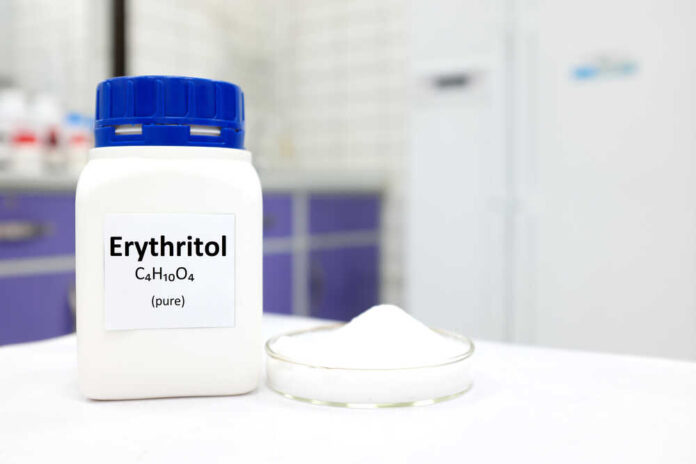
A popular sugar substitute, Erythritol, has been linked to blood clotting, stroke, heart attack, and death, according to a new study published in the Nature Medicine journal. The study found that people at risk of cardiovascular disease had double the likelihood of having a heart attack or stroke if they had the highest level of Erythritol in their blood.
Dr. Stanley Hazen, the lead study author, warned that the degree of risk was substantial and compared it to the strongest cardiac risk factors, like diabetes. Erythritol is a sugar alcohol that looks and tastes like sugar, contains less than 1/4 calorie per gram, and does not result in blood sugar or insulin spikes. It is found naturally in food like grapes and mushrooms and produced commercially by fermentation.
According to the study, Erythritol is typically added at levels 1,000-fold higher than endogenous levels when incorporated into processed foods. Erythritol appears in several products, including branded sweeteners like Truvia, products marketed for “keto” diets, and reduced-sugar products marketed to people with diabetes. The sweetener is also the most prominent ingredient by weight in many products.
Sugar substitute linked to heart attacks, stroke, death; 'stay away,' lead researcher advises https://t.co/ac68fOkgXY
— mzee26 🇺🇸 🇺🇸 (@mzee26) February 28, 2023
Hazen’s research was focused on identifying previously unreported chemicals in subjects’ bloodstreams that could predict an increased risk of cardiovascular injury or illness. The research studied 1,157 blood samples from subjects deemed to be “at risk” for heart disease.
The study also analyzed eight healthy volunteers who drank a beverage containing 30 grams of Erythritol, which is the amount many people in the U.S. regularly consume. They were given blood tests thereafter to track erythritol levels and clotting risk. “Thirty grams was enough to make blood levels of erythritol go up a thousandfold,” Hazen said. “It remained elevated above the threshold necessary to trigger and heighten the clotting risk for the following two to three days.”
Hazen warned that this substance is widely available now, and if it’s harmful as it appears it may be, scientists must examine its effects much more carefully.
The Calorie Control Council, a food industry association, contradicted the study’s results, stating that sugar substitutes like Erythritol are safe for humans. The group relied on the global regulatory permissions previously granted for the use of Erythritol in foods and beverages.
In addition, executive director Robert Rankin argues the results of the study should not be interpreted as being applicable to the general population because the participants in the study were already at increased risk for cardiovascular events.
Oliver Jones, a professor of chemistry at RMIT University in Victoria, Australia, noted that the study had revealed only a correlation between the substance and adverse health effects, not causation.
“Any possible (and, as yet unproven) risks of excess erythritol would also need to be balanced against the genuine health risks of excess glucose consumption,” Jones said in a statement.
















